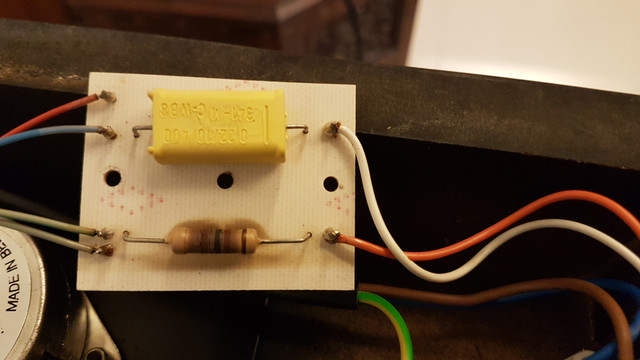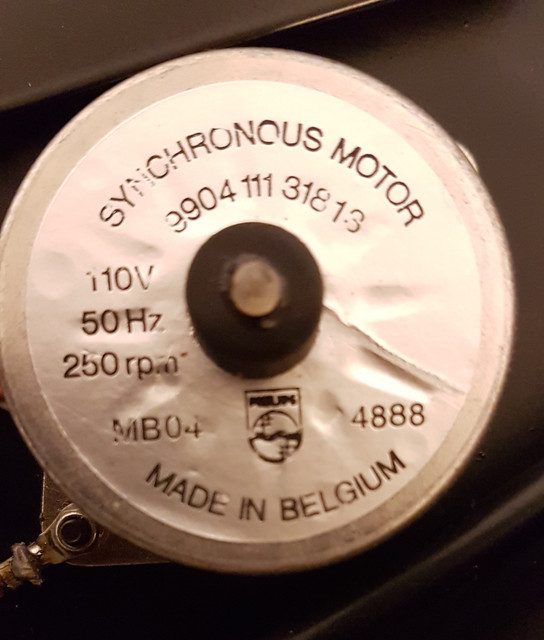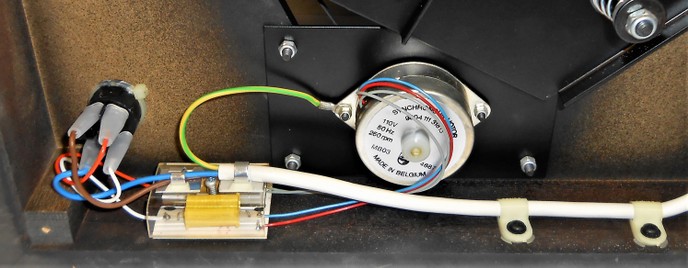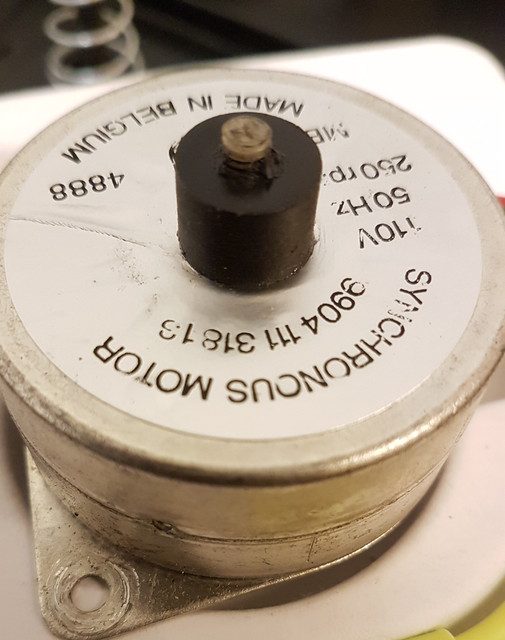cj66
pfm Member
Following in from digging out my Mantra, sorting the wiring on the arm and then finding it plays a little slow, with a "ticking" from the motor.
New belt has not arrived yet but I've checked the cap n resistor for controlling the motor and found the resistor to be charred.
My best guess from the bands is a 2kohm 1w? jobby required and probably worth changing the cap while there.
Does anyone know the ratings for these? My googling didn't help.
I was also surprised to see the motor marked as 110v. This has run happily on 230v.


New belt has not arrived yet but I've checked the cap n resistor for controlling the motor and found the resistor to be charred.
My best guess from the bands is a 2kohm 1w? jobby required and probably worth changing the cap while there.
Does anyone know the ratings for these? My googling didn't help.
I was also surprised to see the motor marked as 110v. This has run happily on 230v.






